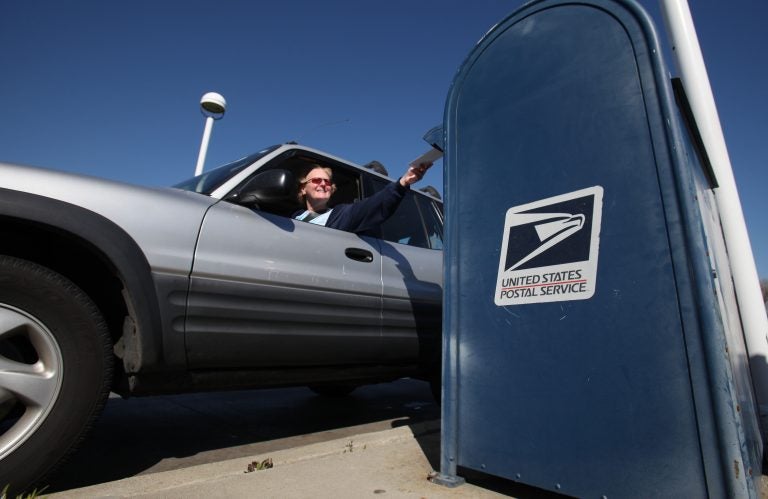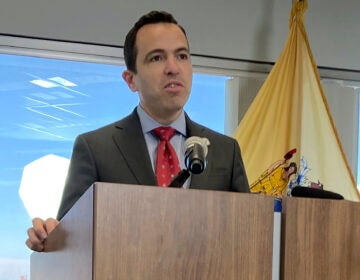N.J. county governments seek to invalidate ‘unfunded’ vote-by-mail law
County governments in N.J. want to overturn a controversial state vote-by-mail law critics say confuses voters and unnecessarily costs taxpayer dollars.

In this photo taken Feb. 24, 2012, mail is deposited into an outdoor postal box (Rich Pedroncelli/AP Photo)
County governments across New Jersey are hoping to overturn a controversial state vote-by-mail law critics say confuses voters and unnecessarily costs taxpayer dollars.
The New Jersey Association of Counties argued before a little-known state board Wednesday that it is unfair to foist costly new requirements on county clerks without appropriating any state funding.
“The vote-by-mail ballots and the vote-by-mail expenses have proven to be very costly for our county clerks in preparing,” said John Donnadio, executive director of the association.
Yet the administration of Gov. Phil Murphy, who signed the vote-by-mail legislation into law, defended the new rule, which forces county clerks to automatically send mail-in ballots to anyone who previously voted by mail starting with the 2016 general election. In the past, voters only received mail-in ballots if they requested one in that election cycle.
“The county clerks are doing the same thing they would have done: They’re providing mail-in ballots to voters who want mail-in ballots,” said Deputy New Jersey Attorney General George Cohen. “The only difference is many [voters] don’t have to request it, and the county clerks are relieved of the obligation of having to review thousands and thousands of mail-in ballot applications.”
Wednesday’s hearing was held before the New Jersey Council on Local Mandates, an independent state board that decides the constitutionality of laws that may impose “unfunded mandates” on local governments.
The council was hearing arguments on the state’s motion to dismiss the association’s claim, and said it would rule soon. If the motion is rejected, then the council will hold a more in-depth hearing on the merits of the complaint.
Supporters say the 2018 law was meant to increase participation in state elections by providing vote-by-mail ballots to any residents who requested them in the 2016 general election or later.
But the law quickly caused confusion. Voters who had requested mail-in ballots in previous cycles were surprised to receive them again, clerks said. Some voters did not know they had received ballots in the mail and went to their polling place to cast a vote.
Beyond the confusion, county governments claimed it cost them additional money to print the extra ballots, print the notices explaining the new law, and ship them to voters — plus the extra labor costs. According to Donnadio, county clerks across New Jersey spent an additional $1.5 million to implement the new law in the 2018 general election.
“The fact that the clerks had to prepare these notices in addition to mailing the vote-by-mail ballots to all the voters who voted in the 2016 presidential election was a burden on our clerks,” he said.
Deputy Attorney General Cohen, on the other hand, argued that the new vote-by-mail requirement is simply a revision of existing vote-by-mail law meant to help voters, which he claimed would not be an unfunded mandate under the terms of the New Jersey Constitution.
“Voters don’t have to take the extra effort of filling out an application, and the clerk’s office does not have to process those applications,” Cohen argued. “It eases the burden on both the clerk and the voters. And it revises the law and eases the requirements of the law.”
WHYY is your source for fact-based, in-depth journalism and information. As a nonprofit organization, we rely on financial support from readers like you. Please give today.




